
TN.cz | The European Commission Has Withdrawn the Directive on Greenwashing. It Is Moving Away From Climate Policies
More info 29. 7. 2025
29. 7. 2025
Some companies or organizations present their products or services as more environmentally friendly than they actually are. This phenomenon is called greenwashing, and the European Commission is addressing this issue. Is it necessary to address it with directives? If so, will this place an additional bureaucratic burden on small businesses? Is the EU backing away from its "green" efforts? Rebeka Hengalová, a researcher at the EUROPEUM Institute for European Policy, answered these and other questions posed by moderator Michaela Indráková.

Novinky.cz | Survey: Most households reject the new allowances
More info 16. 7. 2025
16. 7. 2025
Families are expected to pay significantly more in just a year and a half for heating with gas boilers or coal, as well as for petrol and diesel. Households are rejecting the idea, according to data from the STEM agency for the Institute for European Policy EUROPEUM. Analyst Rebeka Hengalová from EUROPEUM commented on the issue for Novinky.cz.

Seznam Zprávy | Government and opposition fight permits, despite economic realities
More info 14. 7. 2025
14. 7. 2025
The government wants to protect consumers from rising fossil fuel prices, but at the same time refuses to be part of the European ETS 2 emissions trading scheme, the proceeds of which are supposed to help households with the costs. Rebeka Hengalová, an analyst at the Europeum Institute, commented on the situation for Seznam Zprávy.
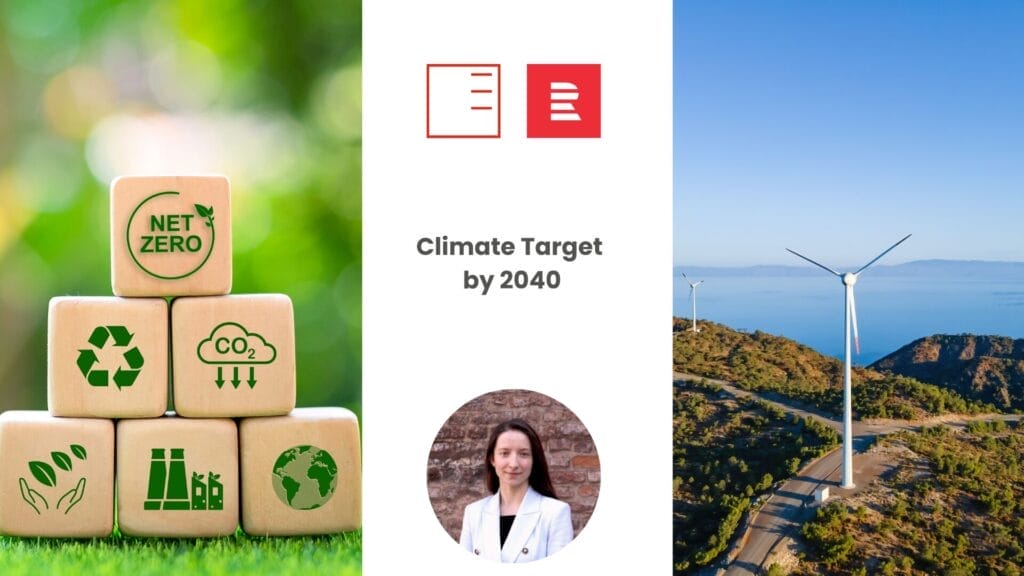
ČRo | Climate Target by 2040
More info 2. 7. 2025
2. 7. 2025
We have committed ourselves to carbon neutrality in 2050, which is why we need to set milestones so that we work towards carbon neutrality incrementally, so that our efforts are not pushed back five to 12 years in 2048. Milestones are also important for predictability, not only for politicians but also for businesses and households. Rebeka Hengalová, researcher at EUROPEUM Institute, commented for Czech Radio.
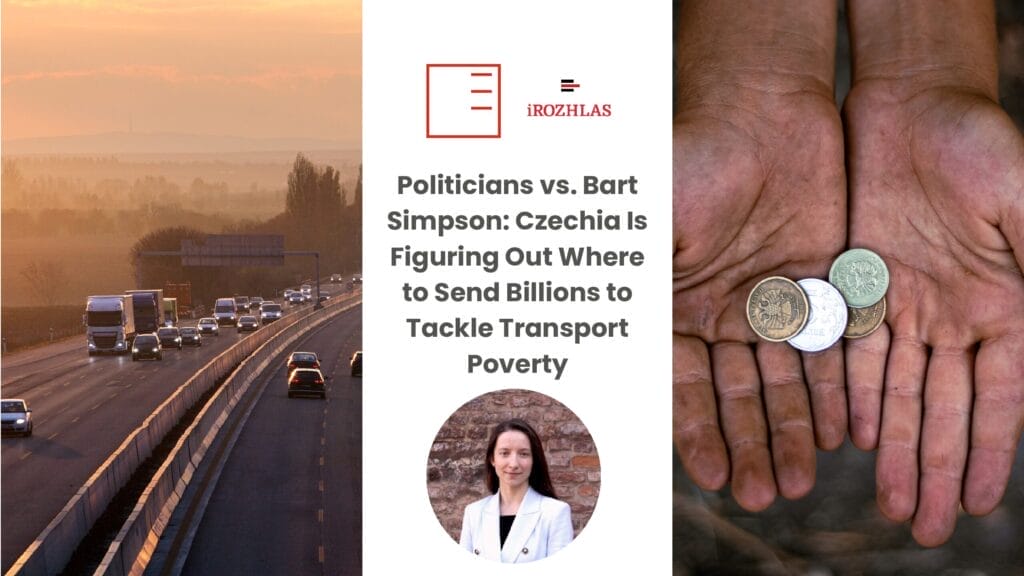
iRozhlas | Politicians vs. Bart Simpson: Czechia Is Figuring Out Where to Send Billions to Tackle Transport Poverty
More info 20. 6. 2025
20. 6. 2025
The Czech Republic could receive billions of Czech crowns from the European Union as of next year, among other things to address transport poverty. The Environment Ministry is finalising a plan that will determine how the money will be distributed. In a survey by the 2050 Institute, which we are exclusively publishing this week, at least a twentieth of people say the new system of emission allowances could cause them major problems. Demand responsive transport or school buses could help, experts suggest. Rebeka Hengalová, a researcher at the EUROPEUM Institute, commented for iRozhlas.
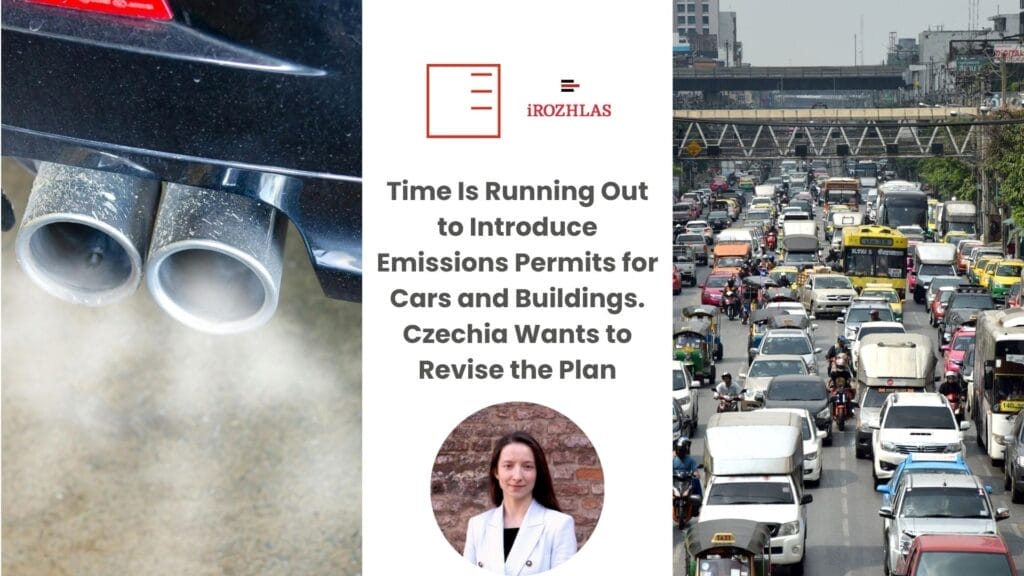
iRozhlas | Time Is Running Out to Introduce Emissions Permits for Cars and Buildings. Czechia Wants to Revise the Plan
More info 19. 6. 2025
19. 6. 2025
In a year and a half, the European Union is set to launch emissions trading for buildings and transport. The system will likely slightly increase the price of diesel, petrol, and gas. The aim is to encourage individuals and companies to reduce their fossil fuel consumption — and thus greenhouse gas emissions.
However, most member states, including Czechia, are behind in transposing the agreed rules into national legislation. Moreover, Czechia is trying to push within the EU for stronger protection against major price fluctuations. The situation was commented on for iRozhlas by Rebeka Hengalová, a researcher at the EUROPEUM Institute.
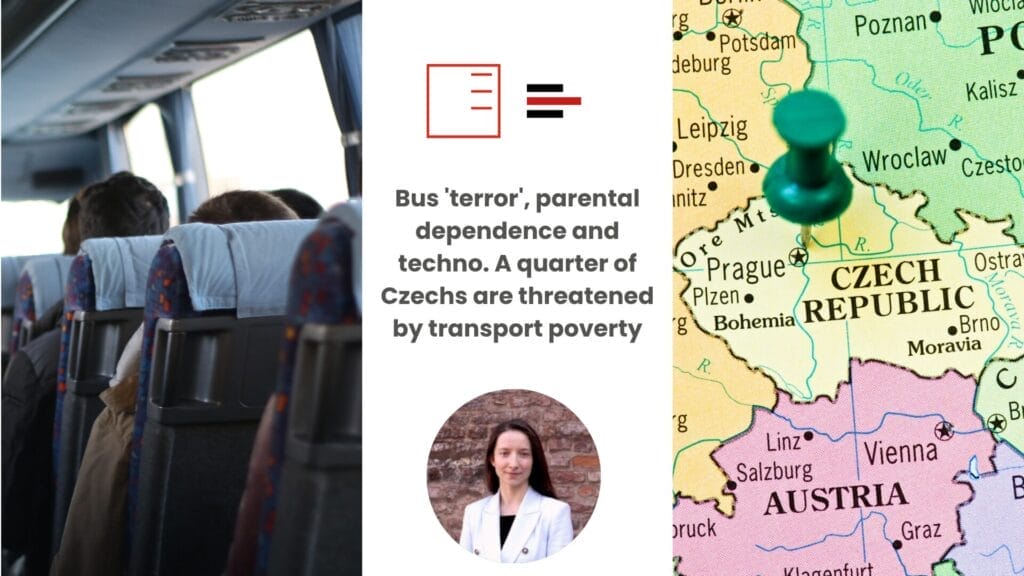
iRozhlas | Bus 'terror', parental dependence and techno. A quarter of Czechs are threatened by transport poverty
More info 17. 6. 2025
17. 6. 2025
More than one in ten Czechs often or almost never manage to reach essential services and activities in the way they need. More than a quarter of the population experiences at least occasional difficulties getting to school, work, or the doctor. This is according to a new study published by the iRozhlas in cooperation with the 2050 Institute. The context and implications of the findings were explained by analyst Rebeka Hengalová from the Institute for European Policy EUROPEUM.
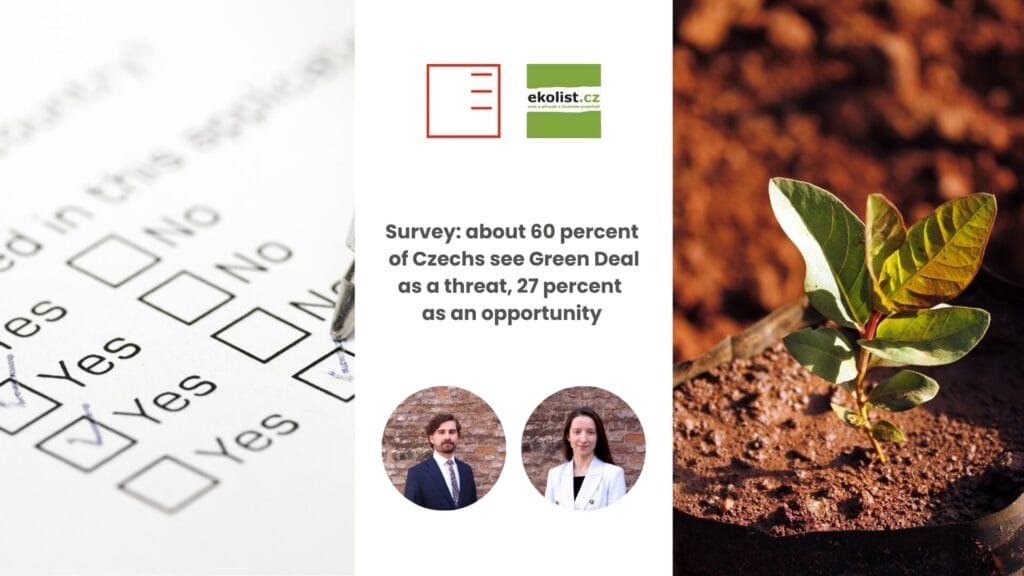
Ekolist.cz | Survey: About 60 percent of Czechs see Green Deal as a threat, 27 as an opportunity
More info 5. 3. 2025
5. 3. 2025
Almost 60 % of Czechs see the Green Deal as a threat, while 27 % see it as an opportunity. This is according to a survey conducted by STEM and the Europeum Institute for European Policy. The Green Deal has become a brand for all climate policy, on which it is relatively easy to pile a lot of different negative aspects. Rebeka Hengalová, researcher at EUROPEUM, and Viktor Daněk, deputy director of the Institute, commented for Ekolist.cz.
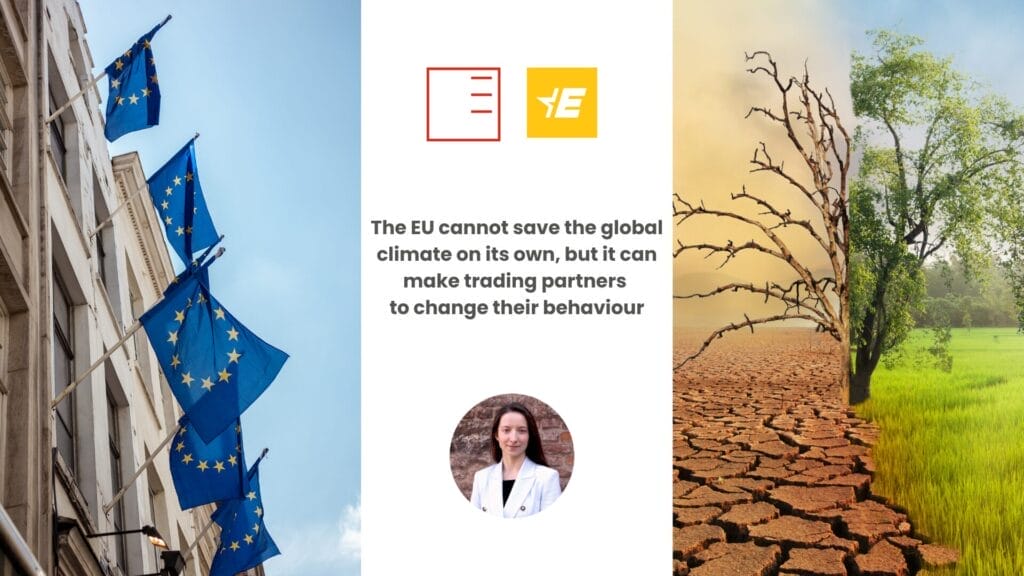
Euractiv.cz | The EU cannot save the global climate on its own, but it can make trading partners change their behaviour
More info 4. 2. 2025
4. 2. 2025
The arrival of Donald Trump as President of the United States of America sends a negative message to the global climate, yet Europe should continue its efforts. These were the conclusions reached by experts during a discussion on climate policy organised by Euractiv.cz.
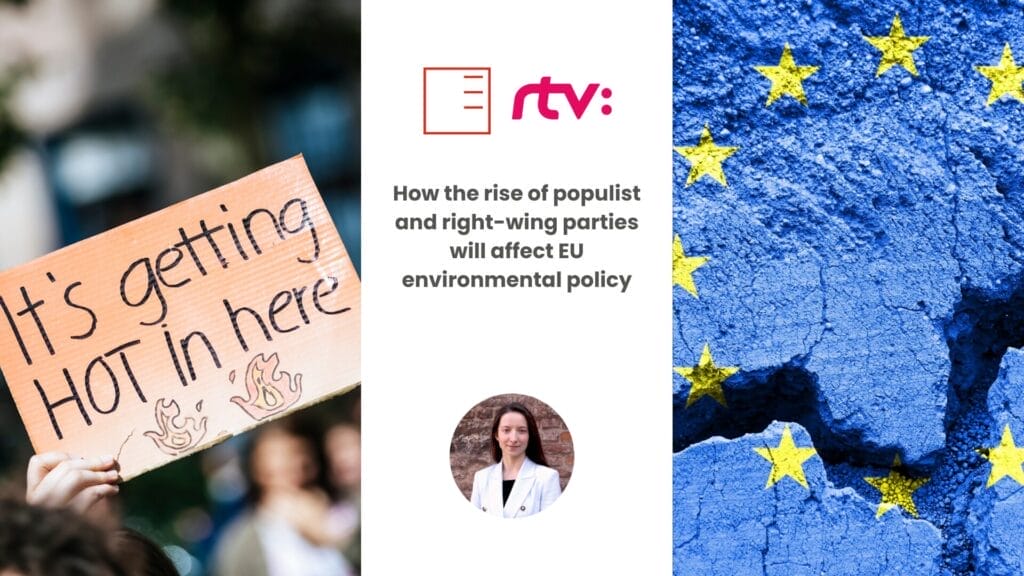
STVR | How the rise of populist and right-wing parties will affect EU environmental policy
More info 23. 1. 2025
23. 1. 2025
In recent years, we have seen a rise in the influence of populist and right-wing parties across Europe, raising questions about the future direction of EU politics. What impact might their strengthening position have on environmental priorities? Will the EU's climate targets be slowed down or will new approaches emerge? Rebeka Hengalová, a research fellow at EUROPEUM Institute, commented for Slovakian radio STVR.
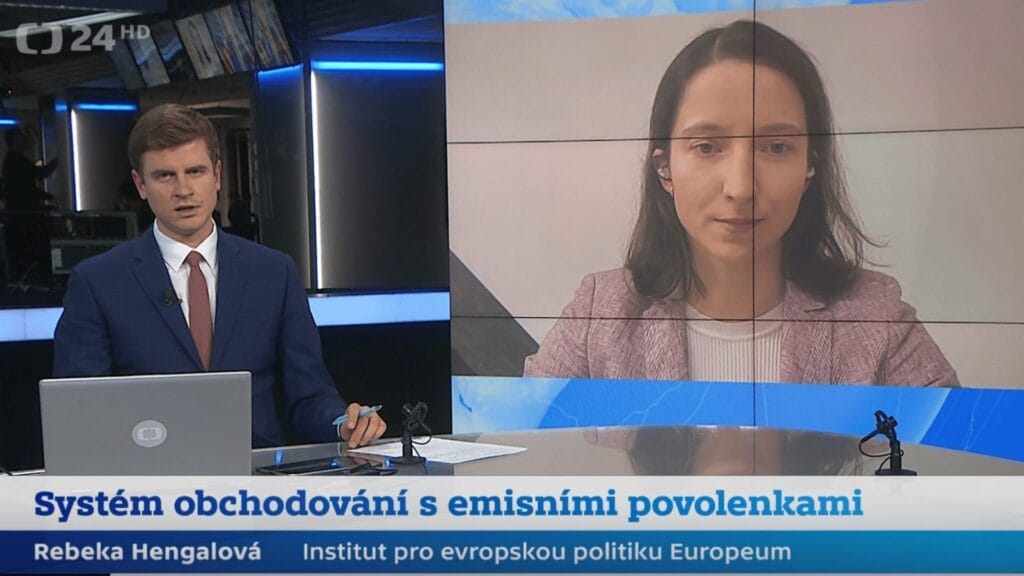
ČT24 | Government aims to postpone and modify the new emissions trading system
More info 16. 12. 2024
16. 12. 2024
Environment Minister Petr Hladík is heading to Brussels to negotiate a postponement of the proposed ETS2 directive, which introduces a new emissions trading system. The government is seeking not only to postpone the directive but also to amend it to strengthen consumer protection. EUROPEUM Institute analyst Rebeka Hengalová commented for ČT24.
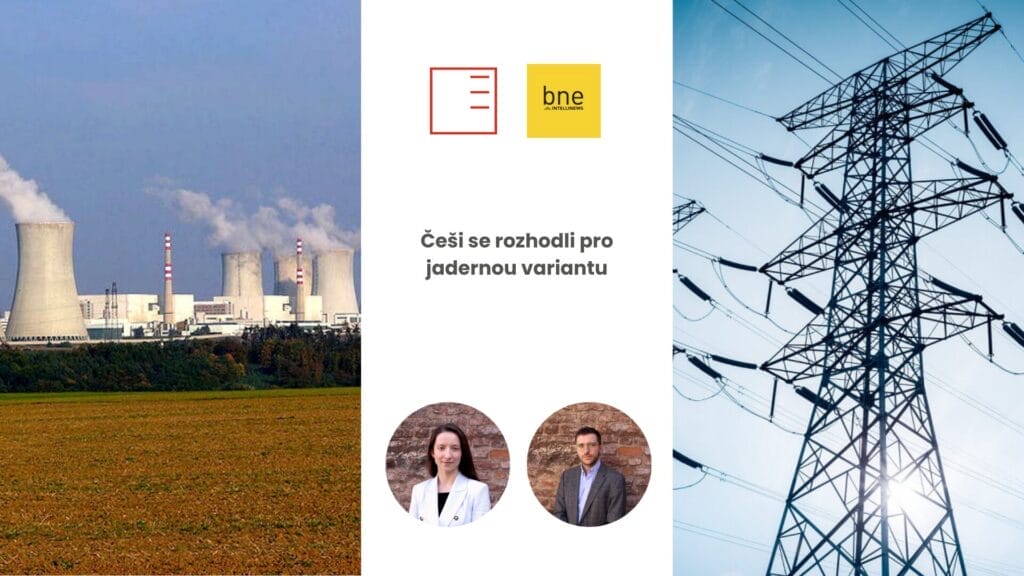
bne IntelliNews | Czechs opt for nuclear option
More info 11. 12. 2024
11. 12. 2024
Currently, the energy mix in the Czech Republic consists mainly of nuclear and coal power, with some secondary input from renewable sources. Coal-fired power plants are to be phased out by 2033 as part of the country's climate mitigation efforts, so the country will be dependent on nuclear and renewables to meet future electricity demand, which is likely to grow due to the shift to electromobility. EUROPEUM Institute researcher Rebeka Hengalová and analyst Filip Křenek commented for bne IntelliNews.